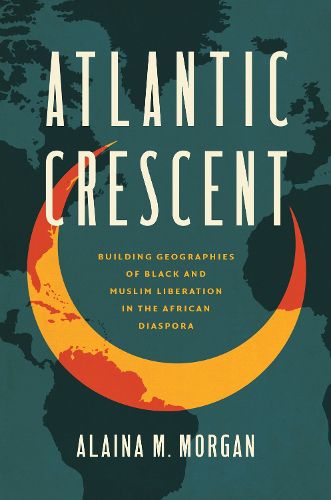Readings Newsletter
Become a Readings Member to make your shopping experience even easier.
Sign in or sign up for free!
You’re not far away from qualifying for FREE standard shipping within Australia
You’ve qualified for FREE standard shipping within Australia
The cart is loading…






In the period between the twentieth century's two world wars, Black and Muslim people from the United States, South Asia, and the Caribbean collided across an expansive diasporic geography. As these people and their ideas came into contact, they reignited the practice of Islam among people of African descent living in the United States and the Anglophone Caribbean and prompted them to adopt new understandings of their place in the world. As the freedom dreams of these diasporic communities met the realities and limitations of colonialism and race in the Atlantic world, Islam presented new strategies for combatting oppression and introduced new allies in the struggle. Envisioning the geography and significance of this encounter within what she calls the Atlantic Crescent, Alaina M. Morgan draws on an expansive archive to show how Black and Muslim people imagined, understood, and acted on their religious and racial identities. Morgan reveals how her subjects' overlapping diasporic encounters with Islam led to varied local adaptation as well as common ground to pursue liberation from racial subjugation and white supremacy.
$9.00 standard shipping within Australia
FREE standard shipping within Australia for orders over $100.00
Express & International shipping calculated at checkout
In the period between the twentieth century's two world wars, Black and Muslim people from the United States, South Asia, and the Caribbean collided across an expansive diasporic geography. As these people and their ideas came into contact, they reignited the practice of Islam among people of African descent living in the United States and the Anglophone Caribbean and prompted them to adopt new understandings of their place in the world. As the freedom dreams of these diasporic communities met the realities and limitations of colonialism and race in the Atlantic world, Islam presented new strategies for combatting oppression and introduced new allies in the struggle. Envisioning the geography and significance of this encounter within what she calls the Atlantic Crescent, Alaina M. Morgan draws on an expansive archive to show how Black and Muslim people imagined, understood, and acted on their religious and racial identities. Morgan reveals how her subjects' overlapping diasporic encounters with Islam led to varied local adaptation as well as common ground to pursue liberation from racial subjugation and white supremacy.